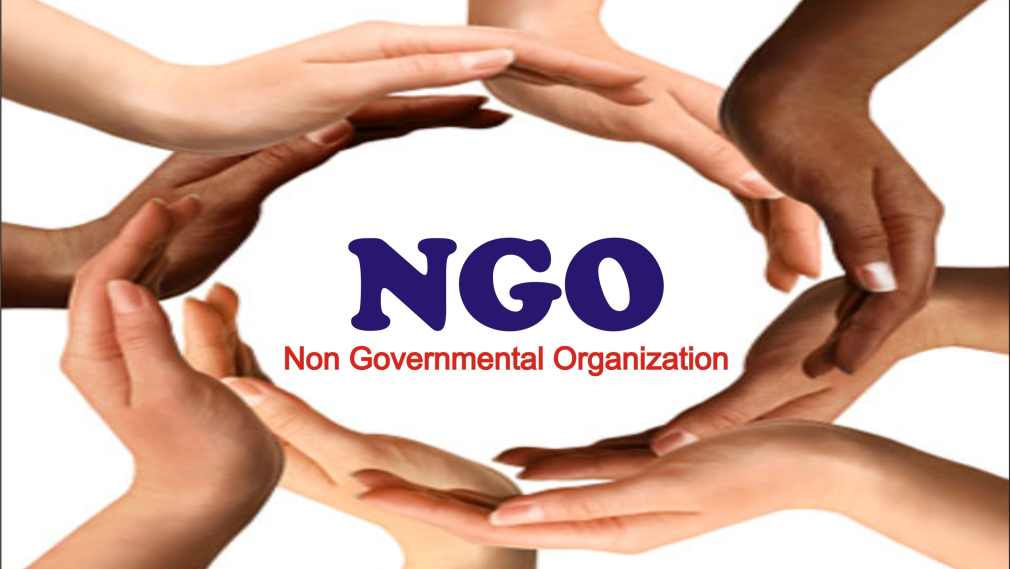KNOW THE LAW 04/04/2022
Workplace Protections for Employees Under Nigerian Law

A couple of weeks ago, I read a very interesting and dare I say, eye opening article by Tech cabal on toxic workplace environments in start-ups. I wouldn’t bother going into the nitty gritty of the article and all it entails; I’ll just encourage you to give it a Google and read for yourself. However, after reading the article, I started having conversations with friends and colleagues to hear their views and experiences on such matters. The responses I got made me realise that this is a prevailing problem not just in start-ups, but generally in the Nigerian workplace. Stories of abusive bosses, sexual harassment, withholding of salaries, unfair dismissals and degrading treatment were just some of the few stories I heard.
What is obvious, is that employers are well aware of the current level of unemployment in the country and use this to their advantage. Brutally. Threats of constant sackings are common place in most Nigerian businesses with employers constantly reminding employees that there are thousands of young job applicants out there just waiting to replace them, and in a country where the unemployment rate is hovering above 30%, these threats have proven effective in silencing employees and allowing abusive employers reign on.
Significantly, most employees are also unaware of the protections afforded to them in workplaces under Nigerian Laws and the Constitution. This is what this article will discuss.
WORKER’S RIGHTS
The first place to start, will be to discuss the rights workers have in Nigeria. These are rights enshrined under the Law and can be demanded from employers if they are breached. One of such is the letter of employment. It is common for people to work in organisations where letters of employment are not given. According to the Nigerian Labour Act, this is illegal; a letter of employment must be given within 3 months of resumption. Most employees are not aware of this and employers use this to their advantage. In the same vein, if an employment contract is given, there are some SPECIFIC DETAILS that MUST be included in an employment contract. These are;
- The name of the employer
- Your name and address and the place and date of your engagement
- The nature of the employment
- If the contract is for a fixed term, the date when the contract expires
- The period of notice to be given within which to terminate the contract
- The rates of wages and method of calculation thereof and the manner and periodicity of payment of wages
- Terms and conditions relating to (i) hours of work; or (ii) holidays and holiday pay; or (iii) incapacity for work due to sickness or injury, including any provisions for sick pay; and any special conditions of the contract
While there is no legislation that specifically regulates equal opportunities and discrimination in employment, the 1999 Constitution of Nigeria, as amended, contains a general prohibition of discrimination on the grounds of: ethnic group; place of origin; community; sex; religion; political opinion; and circumstances of birth.
Also, the Factories Act places an obligation upon employers/owners of a factory to ensure the health, safety and welfare of workers within the factory. Thus, it is the duty of an employer to ensure that the provisions of the Factories Act relating to cleanliness, overcrowding, ventilation, lighting, drainage and sanitary conveniences are complied with.
These are just some of the workers’ rights available to employees working in Nigeria.
HOSTILE/TOXIC WORKPLACE ENVIRONMENT
A hostile workplace environment is a workspace where unsavoury comments or behaviours based on gender, nationality, race, religion, disability etc. affects a worker’s performance or creates an unfavourable work environment for the person being harassed.
The first thing to realise when discussing hostile workplace environments in Nigeria is that there are very few protections available to employees when it comes to abusive or hostile employers. The Nigerian labour Act is virtually silent about it and only creative interpretations of the Act, the Constitution and other local legislation can suffice to protect employees in hostile workplace environments.
Personally, I believe this might be by virtue of culture and cultural interpretations of what is considered normal in a workplace. Most employers and indeed Human Resource (HR) professionals see nothing wrong in employers verbally assaulting employees and using emotionally abusive language. It is usually brushed off as being “passionate” and the employee is encouraged to develop a thicker skin because the abuse will likely not stop. So, the employee is then left with two options. Become a mini rhinoceros, or leave the work and become another digit in the unemployment statistic.
However, THERE ARE protections under the law for employees experiencing hostile workplaces, even though such protections are few and quite narrow. The Employee Compensation Act for one provides for compensation in the event an employee suffers mental stress as a result of a sudden and unexpected traumatic event arising in the course of the employee’s employment (does being yelled at early in the morning count as a sudden and traumatic event? call your lawyer to find out). Also, even though the Labour Act is silent on protections for women when it comes to sexual harassment in the workplace, a creative interpretation of Section 34 of the Constitution would offer this protection to women. Section 34 of the Constitution provides that every individual is entitled to respect for the dignity of his/her person. This can be interpreted in such a way to ensure the dignity of the woman is protected in the workplace when it comes to workplace sexual harassment.
There is also protection under the Criminal law of Lagos State that prohibits harassment that implicitly or explicitly affects a person’s employment or educational opportunity or unreasonably interferes with the person’s work or educational performance; implicitly or explicitly suggests that submission to or rejection of the conduct will be a factor in academic or employment decisions; or creates an intimidating, hostile or offensive learning or working environment. The Kaduna State Penal Code Law also mirrors this.
UNFAIR DISMISSAL
Furthermore, the legal protections afforded to employees when it comes to unfair dismissal has been advanced more by the Nigerian Judiciary then the Legislature.
In the past, Nigerian law generally permitted parties to an employment contract to terminate for cause or for no reason, provided that the terminating party complied with the terms of the contract. However, this position has been substantially altered by the decisions of the National Industrial Court of Nigeria (NICN). By the NICN decision in the leading case of Aloysius v. Diamond Bank (2015 58 NLLR (Pt 199) 92), in certain circumstances, an employee cannot be dismissed without a reason. The employer is required not only to give a reason but that reason must be justified and connected with the performance of the employee’s work.
The law distinguishes between termination and dismissal, with dismissal being a severe sanction available only to the employer and connoting some grave infraction by the employee, such as theft, fraud or gross insubordination. It is often exercised without notice or pay. An employee should only be dismissed for a stated cause. Before a decision is reached on account of an infraction, the law requires the employer to afford the employee an opportunity to defend the allegations. Failure to do so may lead a court to declare the dismissal wrongful, entitling the employee to damages. Notification to the authorities of the dismissal is generally not required. However, there are certain industries that require prior notification to the appropriate industry regulator such as the Oil and Gas industry.
UNFAIR LABOUR PRACTICES
Unfair labour practices are actions by an employer that violates the Constitution or labour laws (federal and state). In Nigeria, unfair labour practices can range from deducting salaries from workers for things like lateness to paying employees with anything other than money like small chops or company gift vouchers (yes, it happens). There is also the issue of unrealistic targets and goals set for employees that the courts have dealt with. In the case of Amanze v. Union Bank Plc (Unreported Suit No. NICN/LA/424/2018), the defendant (a bank), in response to the claimant’s wrongful termination claim, contended that the claimant’s appointment was contingent upon meeting 100 per cent of a set target. The claimant failed to meet this target, comprising principally of a minimum average monthly deposit from target customers. The Court declared the practice of setting deposit targets as a condition for an employee’s continuing employment as wrongful, unlawful and an unfair labour practice.
Similarly, in the case of Chukwunonso v. Ecobank Ltd (Unreported Suit No. NICN/EN/17/2019), the Court decried as an unfair labour practice that banks hold staff responsible for debtors’ loan repayment defaults, despite having only processed the loan documents.
The courts have also dealt with the issue of pre-employment rights of employees. In the case of Obienu v. AIDS Healthcare Foundation (Unreported Suit No. ABJ/122/2020), the court held as binding a contract offering employment, on which the employee acted by accepting, and further notifying her former employer of her resignation and exit. The defendant company was held liable for damages for a breach of contract in purportedly withdrawing the ‘offer’.
Wage and benefit disparity between local employees and foreign staff has also been held to be discriminatory and an unfair labour practice in the case of Iseh Peter v. Sterling Global Oil Exploration (Unreported Suit No. NICN/YEN/42/2018).
These are just some of the common unfair labour practices in Nigeria that the courts have provided protection to employees for.
CONCLUSION
In conclusion, what has become obvious to me over my years of practice is that many employers are acutely aware of the advantage they hold in the labour market due to the high levels of unemployment in the country. They are aware of the power they hold, and they use it. It takes an employee who is aware of his/her rights to challenge this, and sometimes even this is sadly not enough. I am however comforted by the fact that more employees are becoming aware of their rights and the NICN has been active in keeping up with global best practices and standards. Even employers are starting to realise that doing the right thing, hiring trained and professional HR personnel, and having a conducive work environment tends to help with productivity and sales.
I would conclude this piece with a quote from Adam Grant, “The culture of a workplace – an organization’s values, norms and practices – has a huge impact on our happiness and success”.
Adeola Onikoyi is an experienced corporate solicitor that can be reached via [email protected]



